A race to improve reading culture of learners
"We are aware of the hardships children in rural schools go through to access study materials, which has always contributed to their poor learning and performance."
CULTURE
Peterson Kyobe, the headteacher of St. Peters Nursery & Primary School in Buikwe district, used to hire books from a library for use at his school. But when he started receiving book donations, among other scholastic materials, he was compelled to build a library at the facility.
For a society whose reading culture is not so high up there, any efforts towards getting the especially young people to appreciate books is a huge step.
Kyobe says having a library at his school has helped eliminate the cost of hiring books, thanks to routine book donations by a group of Swedish scholars.
Cissy Najjingo, the headteacher of St. Ulrika Nursery and Primary School in Wakiso district, hails the continuous relationship between the Swedish scholars and Ugandan schools.
"We are aware of the hardships children in rural schools go through to access study materials, which has always contributed to their poor learning and performance," she says.
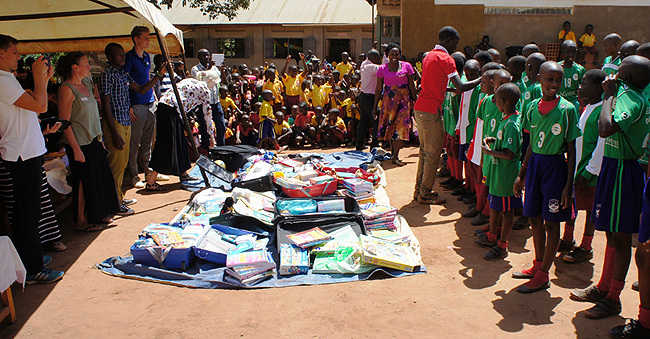 Bags, books and jerseys are among the scholastic stuff donated to St. Peter's Primary School in Ngogwe. (Credit: Julius Luwemba)
Bags, books and jerseys are among the scholastic stuff donated to St. Peter's Primary School in Ngogwe. (Credit: Julius Luwemba)
Over the past years, urban-based learners have generally been indicated as better performers in national exams than their rural-based counterparts. The education ministry has consistently underlined the need to keep learners in school until the end of the school cycle.
In a race to interest schoolgoers in school matters, improving their reading culture has been identified as a key ingredient.
Nadja Malender, who was part of a group visiting scholars from Sweden recently, says that reading more opens children's minds up to the realities of life, which helps them to not only pass exams, but also to better their understanding of the world around them.
This in turn enables young people to "bridge the gap of inequality".
The group of eight, led by Cissi Soderlund, have visited rural schools in Masuulita and Luwami in Wakiso district and Ngogwe in Buikwe district on their fourth visit to Uganda.
Theirs is a mission to change the lives of learners in the less privileged areas by providing them with reading and writing materials, including revision and story books.
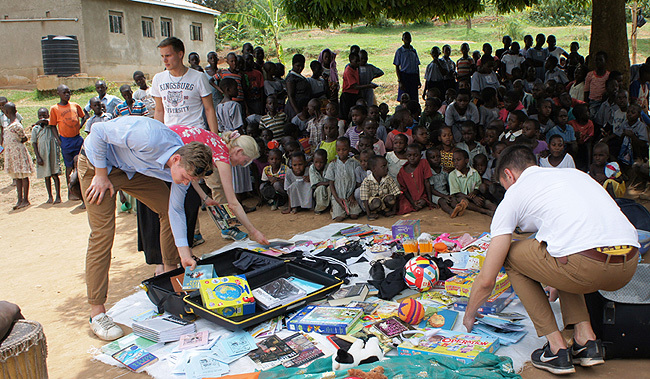 A wide range of scholarstic materials were donated by the visiting team from Sweden. (Credit: Julius Luwemba)
A wide range of scholarstic materials were donated by the visiting team from Sweden. (Credit: Julius Luwemba)
On their latest excursion, they spent a week this month interacting with different teachers and learners as well as sharing experiences on better teaching and learning methods.
"We bought a big number of revision books from Ugandan book stores as listed on the curriculum and brought from home [Sweden] a lot of books that we managed to collect from friends across the globe for this initiative," says Soderlund, a teacher by profession.
Under their non-profit 'Books to Uganda', the Swedes are encouraging school-going children to embrace the culture of reading books, with the argument that is one of the ways of breaking the shackles of inequality among people.
The team, who are hoping to return to Uganda next year with more reading and studying opportunities, also visited and donated books and other daily life necessities to children at the UWESO orphanage in Masuulita.
Carina Sundell, David Malender, Adam Malender, Caral Thulin, Oscar Thulin and Daniel Dahlberg were part of the visiting group.
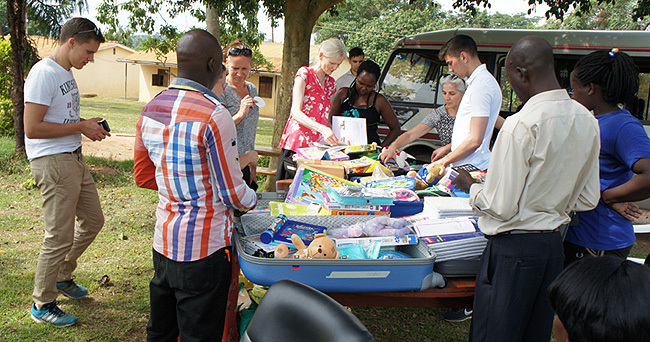 Cissi Soderlund and her team took a huge donation of materials to the UWESO orphanage. (Credit: Julius Luwemba)
Cissi Soderlund and her team took a huge donation of materials to the UWESO orphanage. (Credit: Julius Luwemba)
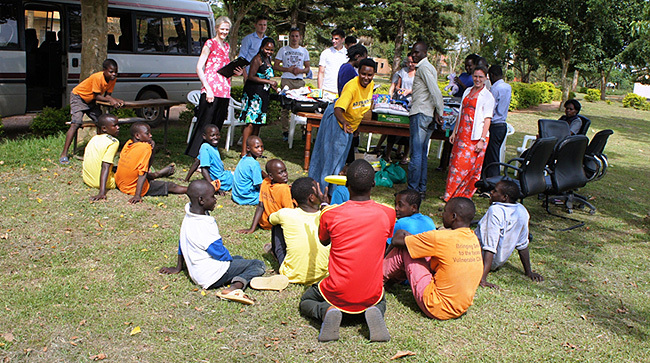
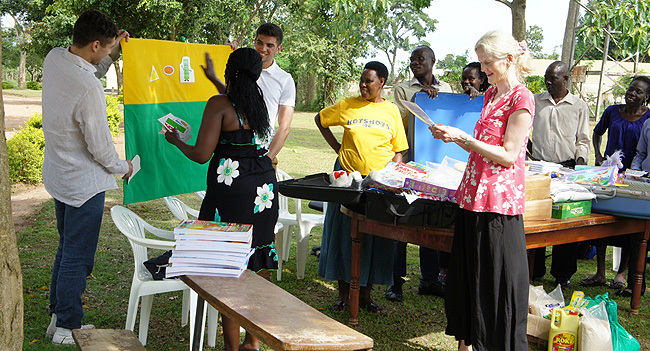 The Swedes demonstrated to instructors how to use some of the reading materials. (Credit: Julius Luwemba)
The Swedes demonstrated to instructors how to use some of the reading materials. (Credit: Julius Luwemba)